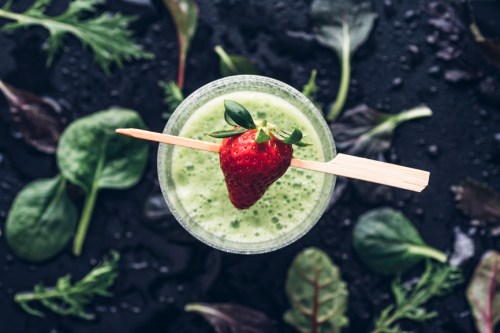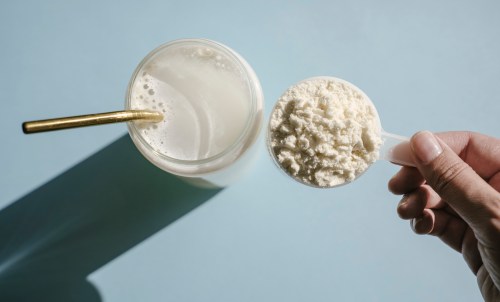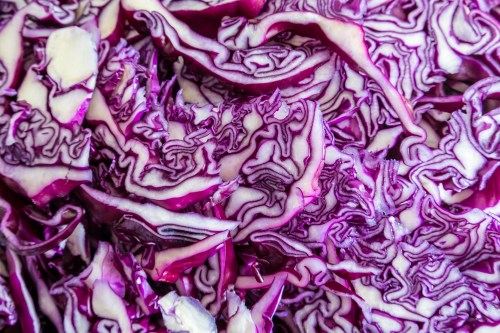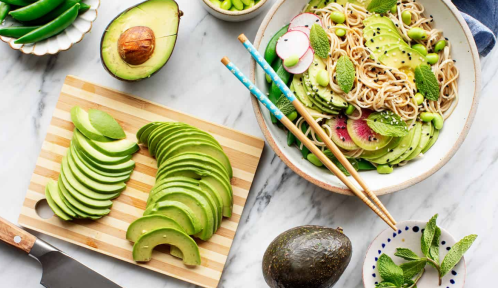Our editors independently select these products. Making a purchase through our links may earn Well+Good a commission
The one thing many of the clients of Amy Shapiro, MS, RD, CDN, are surprisingly intimidated by making themselves? A good smoothie. But in retrospect, this makes a lot of sense; after all, smoothies are all about nailing the right ratios. And we’ve all had occasions when we accidentally dumped in way too much soy milk or spinach and had to start over from scratch.
Experts in This Article
founder and director of Real Nutrition
A well-made smoothie, however, is one of the most delicious, nutrient-dense breakfasts or snack foods you can whirl up, and making one is fuss-free. Smoothies are also endlessly customizable (so you never get sick of ’em), and they’re an amazing, easy opportunity to load up on good-for-you ingredients, especially anti-inflammatory fruits, veggies, and seeds, spices. “Anti-inflammatory foods often contain fiber, vitamins, minerals, and other nutrients that can prevent disease, illness, and boost immunity,” Shapiro says. “They also decrease inflammation in the joints, muscles, and even benefit your eyes. Most of us don’t get enough anti-inflammatory foods in our diets, however, which is why smoothies make such smart snacks.”
To make sure you’re always able to blend up an anti-inflammatory smoothie on the fly, Shapiro recommends keeping frozen fruits and veggies in your freezer so you can use them any time, or trying out a smoothie subscription service like Daily Harvest. “They make the smoothies for you so you don’t have to worry about nailing the right ratios, plus they include all the anti-inflammatory smoothie ingredients you might need,” she says. “And nothing goes to waste!”
Here are the five anti-inflammatory ingredients Shapiro recommends adding to your smoothie.
Anti-inflammatory smoothie ingredients to stock up on:
1. Turmeric
Turmeric contains curcumin, “a powerful compound that contains anti-inflammatory properties which have been used medicinally for years in many cultures,” says Shapiro. “High amounts are needed for medicinal results so using turmeric powder regularly is important. Smoothies make it easy!”
2. Chia seeds
Not-so-fun fact: Most people don’t get enough omega-3 fatty acids in their diet, says Shapiro. However, chia seeds are chock-full of the longevity-supporting, inflammation-preventing nutrient. Shapiro adds that they are also high in fiber, which helps manage blood sugar levels and boosts digestion and heart health, in addition to preventing inflammation. If you’re not the biggest chia fan, no sweat—swap it with flax seeds, which are also packed with anti-inflammatory benefits.
3. Avocado
Is there anything the beloved avocado can’t do? “Rich in monounsaturated fats and antioxidants, including vitamin C and E, avocados do a great job of combating chronic inflammation in the body,” says Shapiro. “In fact, research shows they are so high in anti-inflammatory properties that eating avocado can balance out the damage of less healthy foods.” Plus, they make smoothies deliciously creamy. Feel free to cube your avocados and keep them in the freezer alongside your berries and other frozen fruits—they’ll taste just as delicious in your smoothie when frozen (and lord knows an avocado’s peak-ripeness turns to rot in the blink of an eye).
4. Blueberries
Blueberries contain high amounts of polyphenols, flavonoids, and antioxidants. “In particular, they are a great source of anthocyanin, an antioxidant that promotes heart and brain health,” explains Shapiro. “They are also rich in vitamin C and E—powerful antioxidants that have been shown to prevent cancer and decrease inflammation in the body.”
5. Spinach
“We all need more greens in our life,” says Shapiro. “Spinach doesn’t have a strong taste, so it is easy to blend into a smoothie to add lots of nutrition without any harm.” She adds that this “powerhouse” food is also rich in iron, vitamin K, vitamin C, lutein, folate, and fiber.
Oh hi! You look like someone who loves free workouts, discounts for cutting-edge wellness brands, and exclusive Well+Good content. Sign up for Well+, our online community of wellness insiders, and unlock your rewards instantly.
Sign Up for Our Daily Newsletter
Get all the latest in wellness, trends, food, fitness, beauty, and more delivered right to your inbox.
Got it, you've been added to our email list.











